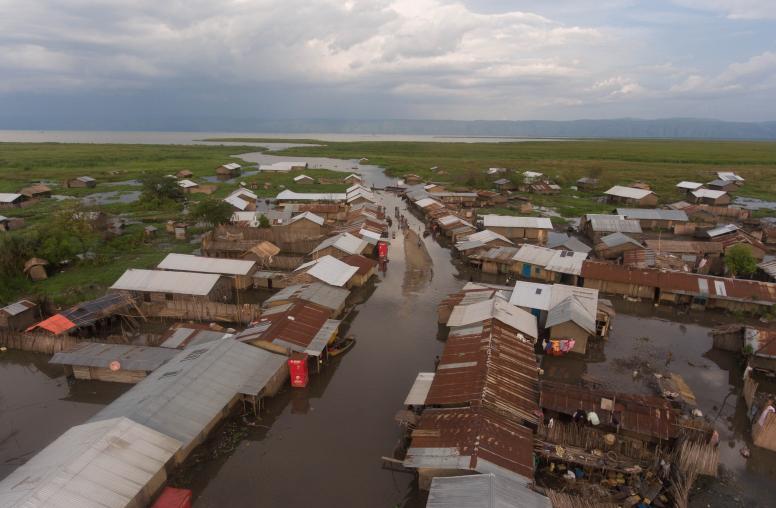In countries across East Africa, youth radicalization by violent extremist groups is an ongoing threat. But the strategies and methods used to address it have been relatively narrow and the role of parents—especially fathers—is not well understood. In order to build better approaches to preventing youth extremism, we need to examine what personal and cultural factors are holding East African fathers back from engaging in prevention efforts, as well as how we can empower them to overcome these hurdles and take on a more pivotal role.

USIP’s grant program commissioned a new report from Women without Borders that did, encouragingly, show that many fathers in Uganda and Zanzibar (a semi-autonomous region of Tanzania) “are aware that their children can be radicalized or are being radicalized,” says Hassan Ndugwa, a USIP Generation Change fellow who works with the Uganda Muslim Youth Development Forum. But from there, the role that fathers play—and hope to play—in countering violent extremism gets complicated, as Ndugwa notes that many fathers “don’t know how to approach the problem.”
There are some paradoxes in fathers’ visions of their role in preventing youth radicalization. While most fathers believed they were the missing piece in the equation, a significant number of them also expressed insecurity regarding their ability to recognize the early warning signs of youth radicalization. And when it came to their views on community-wide efforts, they acknowledged the need for a holistic approach while simultaneously exhibiting low levels of trust in much of government and civil society.
Talking About Extremism: A Major Taboo
One reason that fathers felt unprepared to play a major role in prevention efforts is that extremism is generally a taboo topic rarely discussed in public. In communities wracked by violence, fathers are likely unwilling to make their concerns around extremism public.
This taboo has contributed to a general insecurity among fathers, many of whom “do not know how their children are recruited into these extremist groups,” according to Fiona Mukasa, a Ugandan civil society leader.
However, despite this insecurity, fathers expressed a strong desire to become more involved in protecting their children from the appeals of violent extremism—including a willingness to participate in training to recognize and react to the early warning signs of youth radicalization. A vast majority also reported being open to a whole range of supportive activities, with some suggesting arts and cultural activities as ways to engage with vulnerable youth without attracting negative public scrutiny or dangerous visibility.
Still, programs designed to engage fathers must first understand the context they are operating in before jumping straight to providing knowledge and skills training. Making the programs or participants private, hiring extra security, and moving training locations outside of specific hot spots are all practical solutions that can help to assuage the very real security concerns that come with disrupting violent extremist recruitment efforts.
A Whole-of-Community Prevention Approach
While recognizing themselves as the main missing piece, Zanzibari and Ugandan fathers also acknowledged that everyone can—and must—play a constructive role in prevention efforts, including mothers and community institutions.
Yet, despite this conviction, fathers also exhibited middling levels of trust in state institutions and civil society as an effective buffer to extremist recruitment efforts. Fathers clearly understood that the monumental task of parenting requires substantial involvement beyond the core nuclear family alone, but their faith in the community’s ability to do so is shaky at best. This distrust extended to outsiders from other cultures as well, who they considered a dangerous influence on local youth.
There were exceptions to this skepticism, however. Teachers and religious leaders enjoyed almost unanimous trust from the fathers who were surveyed. These groups offer a bridge into broader community involvement for fathers and can provide a common space to build trust and understanding. Not only is this important for the community at-large, it also allows for anti-radicalization messages to be reinforced and demonstrated at home, by both mothers and fathers, instead of being contradicted or being treated with suspicion.
Fathers clearly understand that there is a role for them to play in preventing extremist recruitment of youth. But any prevention program targeting youth must accept that in order to engage fathers, there is much work to be done in legitimizing whole-of-community efforts.
Some civil society organizations have made it clear they’re up to the task. “I think all the findings were extremely powerful,” said Nanfuka Zulaika, a program specialist with the Uganda Muslim Youth Development Forum. “We hope to employ a number of them in designing and restructuring the programs that we do.”
Different Countries, Different Challenges
The fathers of East Africa are not a homogenous group, and there were notable differences in their concerns and perceptions based on geography. For starters, Ugandan fathers saw radicalization as a more potent and urgent threat to their children and had lower levels of confidence in their children to fend off extremist recruitment efforts.
Additionally, Ugandan fathers almost unanimously recognized the presence of extremist group recruiters in their country, underscoring the palpable risk that Ugandan youth currently face and the dire need for effective prevention efforts. Meanwhile, Zanzibari fathers were overall concerned about violent extremism at about the same level as Ugandan fathers but viewed the issue from a less religious framework and were less critical of fathers’ ability to play a role in prevention.
These geographical variations all underscore the stark reality that engaging East African fathers will be a distinct undertaking for each country and community. And while there are undoubtedly universal realities in the fight against youth extremism, any program looking to engage fathers needs to take account of these local realities to inform their work.
These insights also reveal the need for more diverse and comprehensive research across East Africa and beyond. There is immense potential for fathers to help thwart extremist recruiters who target susceptible youth—but in order to tap into it, practitioners need a more immersive and nuanced understanding of the situation.



